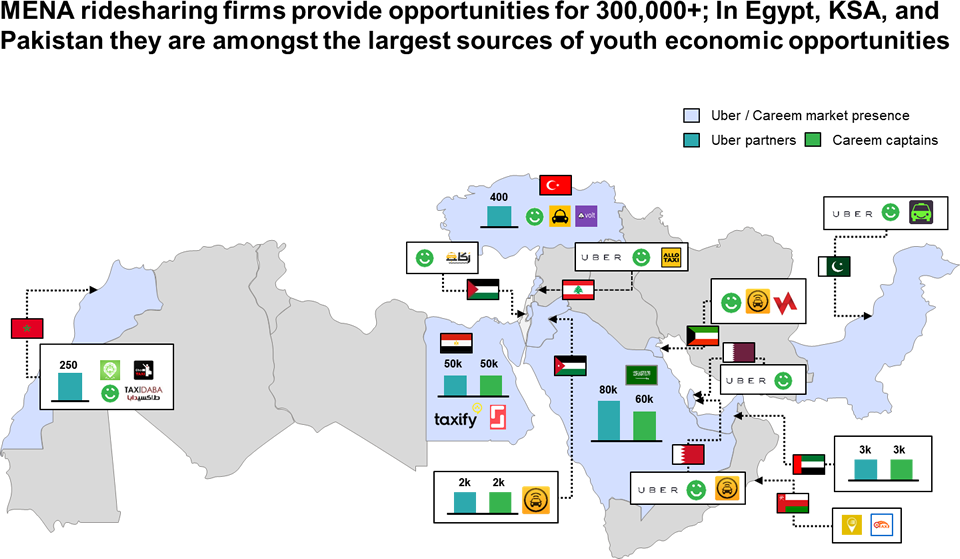The ridesharing sector has the potential to generate an unprecedented level of opportunity for regional youth
- The opportunities by ridesharing over the past four years now exceed the workforce of the largest regional public sector employers
- Based on this analysis, technology-driven business models in the sharing economy have the potential to be a key tool for MENA governments to complement active labor market policies
In this Insights at the Edge of Government Analysis Flash, we look at the unprecedented level of economic opportunities for MENA youth created by ridesharing companies.
In Egypt, Pakistan, and Saudi Arabia alone, ridesharing firms have catalyzed 200,000+ economic opportunities.
These opportunities, which have been created over the last 4 years, now exceed the workforce of the largest regional public sector employers as well as the expected job creation impact of many of the region’s in progress mega projects.
In previous blog posts, we have written about how sensible regulation of the sharing economy has the potential to contribute significantly to the MENA’s socio-economic development.
Some countries, like Saudi Arabia, are getting sharing economy regulation right, while other MENA countries remain focused on more traditional policies to attract inward foreign direct investment flows for mega projects to create high skill, high wage jobs in knowledge-based industries and protect industry incumbents.
Based on this analysis, technology-driven business models in the sharing economy have the potential to be a key tool for MENA governments to complement active labor market policies and large scale national economic opportunity generation strategies.



































